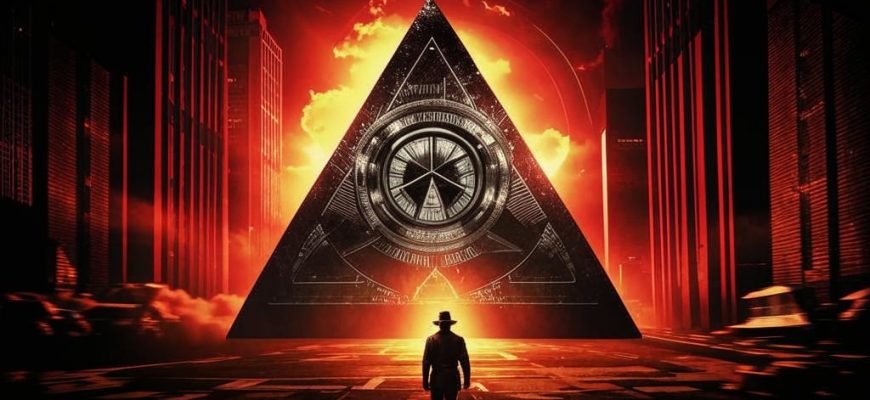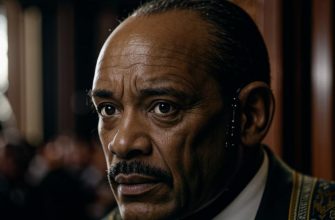“The Da Vinci Code”, 2006
Director: Ron Howard

Another film based on a novel by Dan Brown, “The Da Vinci Code,” sees Robert Langdon uncovering a historical conspiracy that the Church has kept secret for centuries. While not explicitly about the Illuminati, the film delves into secret societies such as the Priory of Sion and Opus Dei, touching on themes closely associated with the Illuminati such as hidden knowledge, sacred geometry, and the quest for power.
Starring: Tom Hanks, Audrey Tautou, Ian McKellen, Jean Reno, Paul Bettany, Alfred Molina, Jürgen Prochnow, Jean-Yves Berteloot, Etienne Chicot, Jean-Pierre Marielle;
Production year: 2006;
Genre: thriller, detective;
MPAA rating: pg13;
Duration: 149 min.;
Rating: IMDB: 6,6;
More information about the film “The Da Vinci Code” on the website imdb.com
“National Treasure”, 2004
Director: Jon Turteltaub

Starring Nicolas Cage as treasure hunter Benjamin Franklin Gates, who discovers a hidden map on the back of the Declaration of Independence, this film, although more focused on the Freemasons than the Illuminati specifically, touches upon similar themes of secret societies and ancient knowledge. Gates embarks on a high-stakes adventure to find the treasure before a team of mercenaries does.
Starring: Nicolas Cage, Diane Kruger, Justin Bartha, Sean Bean, Jon Voight, Harvey Keitel, Christopher Plummer, David Dayan Fisher, Stewart Finlay-McLennan;
Production year: 2004;
Genre: action, thriller, detective, adventure;
MPAA rating: pg;
Duration: 131 min.;
Rating: IMDB: 6,9;
More information about the film “National Treasure” on the website imdb.com
These films, while varying in accuracy and genre, all contribute to the public's fascination with the idea of the Illuminati and secret societies. They blend historical fact and fiction to create compelling narratives that continue to captivate audiences around the world.
In the labyrinthine corridors of cinematic storytelling, films about the Illuminati have etched an indelible mark, weaving narratives that dance on the razor's edge between the arcane and the conceivable. They have perpetually captivated audiences with a blend of historical intrigue, speculative fiction, and a dose of the clandestine, inviting viewers to ponder the limits of power and the shadowy networks that might wield it. Whether these films cast the Illuminati as puppeteers of global events or as guardians of ancient wisdom, they serve a dual purpose: entertaining the masses while prodding the collective consciousness to question the forces shaping our world. As the credits roll, viewers are left to untangle the threads of fiction from potential fact, a testament to the genre’s enduring allure and its capacity to blend the esoteric with the existential. Through their exploration of secrecy, influence, and the hunger for control, films about the Illuminati not only entertain but also enrich our understanding of the human condition and its perennial quest for power, both seen and unseen.









